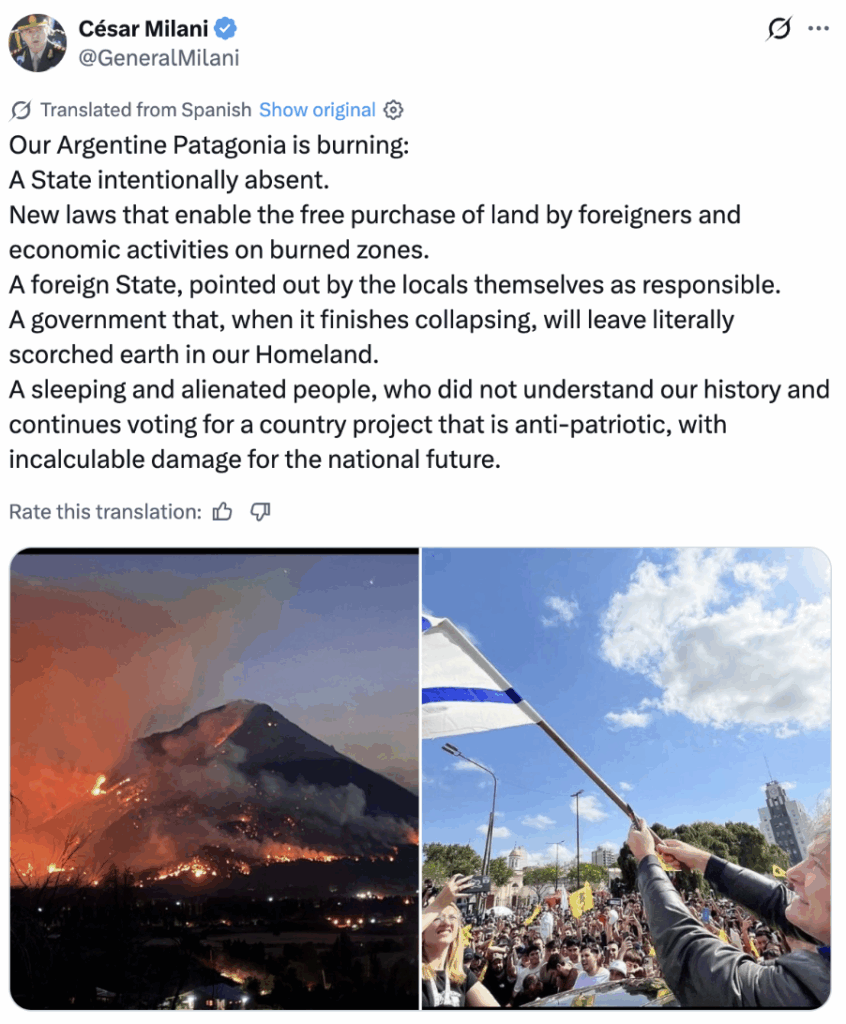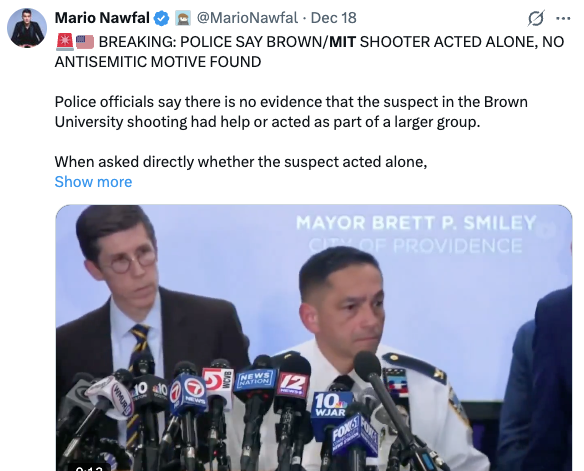In today’s polarized political climate, Holocaust-era comparisons have become increasingly common on social media. One example is the term “Gestapo,” once reserved for describing the Nazi regime’s brutal secret police, the term is now being used to label modern U.S. law enforcement agencies.
Our analysis of social media data from 2017 to 2024 shows a 184% increase in overall mentions of the term “Gestapo.” More strikingly, posts specifically comparing the Gestapo to federal law enforcement agencies in the U.S. rose by 388% during the same period.

These references often involve invoking Nazi institutions and figures in contemporary political debates. However, this increase has not followed a steady trajectory—instead, usage correlates with high-profile political flashpoints, peaking sharply in 2018, 2020, 2022, and 2025. Each of these years saw major controversies involving ICE, the Department of Homeland Security, and federal policing of protests and immigration enforcement.

Already in 2025, with less than six full months of data, references to the Gestapo—and particularly comparisons to U.S. agencies—have reached their highest levels on record. The surge has been driven in part by statements from political leaders and the resurfacing of masked, unmarked federal enforcement tactics, reviving public fears of secretive or authoritarian policing.
Definition of Gestapo
The Gestapo—short for Geheime Staatspolizei, meaning “Secret State Police” in German—was the official secret police of Nazi Germany, established in 1933 by Hermann Göring and later controlled by Heinrich Himmler and the SS.
What Drove the Spikes in Gestapo Comparisons
The sharpest increases in online comparisons between U.S. federal agencies and the Gestapo align with specific flashpoints in recent political history—each marked by controversial policies and tactics used by law enforcement, or high-profile government actions.
2018 – The first major spike occurred as a response to the Trump administration’s rollout of the “zero tolerance” immigration policy. Thousands of migrant children were separated from their parents at the U.S.–Mexico border, triggering outrage. Viral footage of children in cage-like facilities and reports of parents being deported without their children led critics to accuse ICE of operating as a secretive, unaccountable force. Activists, journalists, elected officials, and people online began invoking Gestapo comparisons to describe what they saw as state-sponsored cruelty and extrajudicial behavior.
2020 – The next spike came amid the nationwide racial justice protests following the murder of George Floyd in May. In response to protests, federal agents detained protesters, at times in unmarked vans without identifying themselves. Social media lit up with references to the Gestapo, as people condemned the operations as reminiscent of secret police behavior.
2022 – While immigrant rights groups continued to criticize ICE for alleged abuses and lack of oversight, in 2022 the largest driver was reaction to the FBI’s execution of a search warrant at Donald Trump’s Mar-a-Lago residence to recover classified documents. Several of his allies labeled the raid “Gestapo tactics” and accused the Biden administration of weaponizing law enforcement.
2025 – So far in 2025, comparisons have surged to record highs, as debates flare over immigration policies once again. A central flashpoint was Minnesota Governor Tim Walz’s reference to ICE as “Trump’s modern-day Gestapo” during a university commencement address. His remarks drew condemnation from DHS officials and headlines nationwide. At the same time, reports of masked, unidentified federal agents conducting immigration raids in major cities—including Los Angeles—have circulated widely on social media, further fueling the analogy.
Comparisons Transcend Political Lines
Gestapo language has not been monopolized by one side of the political spectrum; these comparisons transcend political lines. On the right, critics of President Biden have referred to the FBI or Department of Justice as “Biden’s Gestapo” in response to investigations and law enforcement actions.
On the left, immigration enforcement under the current, and previous, Trump administrations prompted comparisons between ICE raids and Gestapo roundups. The use of the term often signals outrage—but it also reveals a deeper erosion in how the public engages in political discourse.
An analysis comparing the use of the term “Gestapo” during the calendar years aligning with Trump’s first term (2017–2020) and Biden’s term (2021–2024) found that overall mentions were relatively similar. Likewise, we looked at the percent of the conversation that invoked comparisons linking the Gestapo to U.S. federal law enforcement, and found them to be at comparable rates under both administrations.
The analysis accounted for several variables and types of comparisons. In total, we examined three primary ways the term “Gestapo” was invoked and combined them to calculate the overall figures.
- An analysis of mentions of “Gestapo” alongside references to federal law enforcement agencies such as the FBI, DOJ, and ICE, among others.
- An analysis of the phrases “Biden’s Gestapo” and “Trump’s Gestapo” during their respective presidencies.
- Mentions of the phrase “Gestapo tactics” to capture how users invoke the comparisons by describing law enforcement behaviors perceived as secretive, abusive, or authoritarian.
The differences by administration were minor: the overall number of comparisons was slightly higher during Trump’s first term, direct references to “Biden’s Gestapo” were more common under Biden, and the phrase “Gestapo tactics” appeared more frequently during the Trump years.

As noted above, 2025—the first year of Trump’s second presidential term—is already breaking record levels of online comparisons between federal law enforcement and the Gestapo. If the current pace continues, mentions will quickly surpass totals from both Trump’s and Biden’s previous terms.
To put this in perspective: the average monthly number of posts comparing federal law enforcement to the Gestapo was approximately 18,000 during the Biden administration and 19,000 during Trump’s first term. In contrast, the monthly average for the first half of 2025 has surged to around 101,000 posts. So far, 49% of all Gestapo-related posts in 2025 include comparisons to federal law enforcement—far exceeding the 32% during Biden’s term and 38% during Trump’s first term.
Why Gestapo Comparisons Trivialize the Holocaust
Calling federal agencies “Gestapo” is more than just rhetorical excess. It trivializes the Holocaust, distorts history, and erodes public understanding of both the past and present. The Gestapo was not a generic symbol of authoritarianism; it was the Nazi regime’s secret police force, responsible for suppressing dissent, instilling fear, and carrying out some of the most brutal acts of the Holocaust.
Its agents facilitated the identification, arrest, torture, and deportation of Jews, political opponents, and others deemed “undesirable” by the Nazi regime. Invoking the Gestapo in reference to contemporary law enforcement—regardless of the political context—risks detaching the term from its historical weight and distorting public understanding of the Holocaust.
The Gestapo is just one example of how Holocaust-era language is increasingly being misused. On social media, comparisons of current political figures and entities to Nazis, Hitler, and concentration camps have also become more frequent, often deployed to criticize political opponents or controversial policies. While these comparisons may be intended to signal moral urgency, many in the Jewish community and beyond feel they contribute to a broader pattern of Holocaust trivialization—a misuse of Holocaust memory that diminishes the scale and specificity of Nazi crimes.
Over time, these rhetorical shortcuts may contribute to an erosion of the distinctiveness of Holocaust history and make it easier for denial, distortion, or antisemitic conspiracy theories to take hold—especially in an online environment where misinformation spreads rapidly.
For the Jewish community, this trend is not just historically inaccurate—it is painful and dangerous. Trivializing the Holocaust weakens the collective resolve to confront antisemitism and recognize the warning signs of rising hatred. It also contributes to a broader cultural desensitization, in which words like “Nazi,” “Gestapo,” or “concentration camp” lose their specificity and become interchangeable with any perceived abuse of power. Preserving the integrity of Holocaust memory is not about silencing political criticism; it is about ensuring that the atrocities of the past are neither misused nor forgotten, and that their lessons remain clear and relevant in a time of rising extremism.




